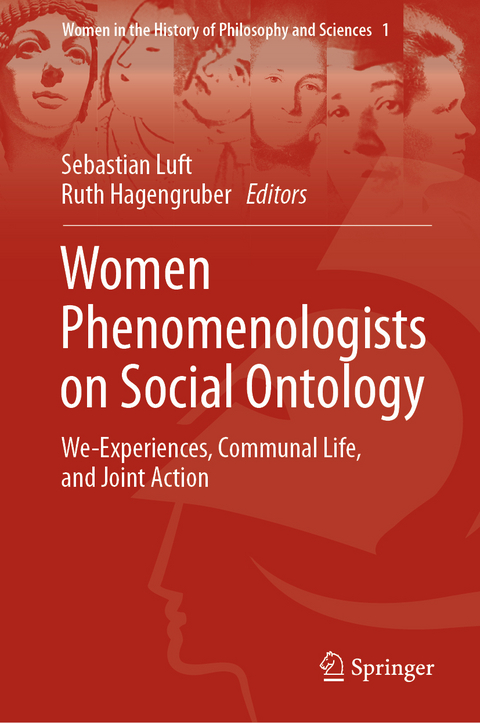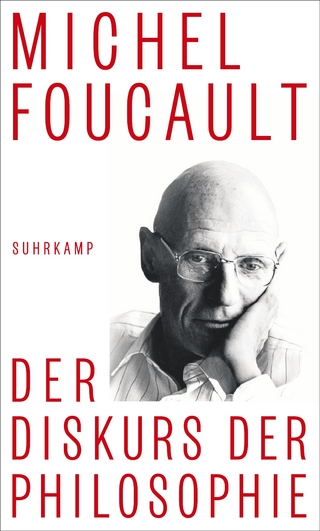
Women Phenomenologists on Social Ontology
Springer International Publishing (Verlag)
978-3-319-97860-4 (ISBN)
This edited volume examines women's voices in phenomenology, many of which had a formative impact on the movement but have be kept relatively silent for many years. It features papers that truly extend the canonical scope of phenomenological research. Readers will discover the rich philosophical output of such scholars as Edith Stein, Hedwig Conrad-Martius, and Gerda Walther. They will also come to see how the phenomenological movement allowed its female proponents to achieve a position in the academic world few women could enjoy at the time.
The book explores the intersection of social ontology, phenomenology, and women scholars in phenomenology. The papers offer a fresh look at such topics as the nature of communities, shared values, feelings, and other mental content. In addition, coverage examines the contributions of Jewish women to the science, who were present at the beginning of the phenomenological movement. This remarkable anthology also features a paper on Gerda Walther written by Linda Lopez McAlister, former editor of the feminist journal Hypatia, who had met Walther in 1976.This book features work from the conference "Women Phenomenologists on Social Ontology," held at the University of Paderborn. Overall, it collects profiles and analysis that unveil a hidden history of phenomenology.
Sebastian Luft is professor of philosophy at Marquette University. He has held visiting positions at the universities of Paderborn, Freiburg i.Br., Graz, San Juan (Puerto Rico). He specializes in phenomenology, philosophy of culture, and 19th & 20th century European philosophy. He has published and edited several books and numerous articles in these areas. Ruth Hagengruber is Professor of Philosophy and Chair of the Department of Philosophy at Paderborn University, Germany. In 2006 she founded the teaching and research area History of Women Philosophers & Scientists and is director of the 2016 founded Center for the History of Women Philosophers & Scientists at Paderborn University. Ruth Hagengruber also writes on Philosophy, Technology and Economics. She is honorary member of the International Association for Computing and Philosophy and member of the Advisory Board of the Munich Center for Technology in Society at the U München.
Part 1: Social Ontology in Edith Stein and Gerda Walther.- Chapter 1. The Role of Empathy in Experiencing Community (Antonio Calcagno).- Chapter 2. Meaning of Individuals within Communities: Gerda Walther and Edith Stein on the Constitution of Social Communities (Julia Mühl).- Chapter 3. Edith Stein on Social Ontology and the Constitution of Individual Moral Identity (William Tullius).- Chapter 4. The Ontic-Ontological Aspects of Social Life. Edith Stein's Approach to the Problem (Anna Jani).- Chapter 5. Starting from Husserl: Communal Life according to Edith Stein (Alice Togni).- Chapter 6. The role of the intellectual in the social organism. Edith Stein's analyses between social ontology and philosophical anthropology (Martina Galvani).- Chapter 7. The Phenomenology of Shared Emotions - Reassessing Gerda Walther (Thomas Szanto).- Chapter 8. We-Experience - with Walther (Hans-Bernhard Schmid).- Chapter 9. Gerda Walther between the phenomenology of mystics andthe ontology of communities (Anna Piazza:).- Chapter 10. Do We-Experiences Require an Intentional Object? On the Nature of Reflective Communities (Following Gerda Walther) (Sebastian Luft).- Part2: The Ontology of Hedwig Conrad-Martius.- Chapter 11. Essence, Abyss, and Self - Hedwig Conrad-Martius on the Non-Spatial Dimensions of Being (Ronny Miron).- Chapter 12. "The reinstatement of the phenomenon". Hedwig Conrad Martius and the meaning of "being" (Manuela Massa).- Chapter 13. From Collectives to Groups - Sartre and Stein on Joint Action and Emotional Sharing (Gerhard Thonhauser).- Chapter 14. Women as zoa politika, or: Why There Could Never Be a Women's Party. An Arendtian-Inspired Phenomenology of a Female Political Subject (Maria Robaszkiewicz).- Chapter 15. Ontology is social. How Arendt Solves a Wittgensteinian Problem (Anna-Magdalena Schaupp).
| Erscheinungsdatum | 13.11.2018 |
|---|---|
| Reihe/Serie | Women in the History of Philosophy and Sciences |
| Zusatzinfo | XX, 244 p. 5 illus., 3 illus. in color. |
| Verlagsort | Cham |
| Sprache | englisch |
| Maße | 155 x 235 mm |
| Gewicht | 665 g |
| Themenwelt | Geisteswissenschaften ► Philosophie ► Philosophie der Neuzeit |
| Schlagworte | Edith Stein • Emotional Sharing • ethics • Female Political Subject • Gerda Walther • Hannah Arendt • Hedwig Conrad Martius • Individual Moral Identity • Jewish Studies / History • ontology of communities • phenomenological ethics • Phenomenology • Political Philosophy • Social Ontology • Sociology • Spatial Dimensions of Being • We-Experiences • Women phenomenologists |
| ISBN-10 | 3-319-97860-8 / 3319978608 |
| ISBN-13 | 978-3-319-97860-4 / 9783319978604 |
| Zustand | Neuware |
| Haben Sie eine Frage zum Produkt? |
aus dem Bereich


